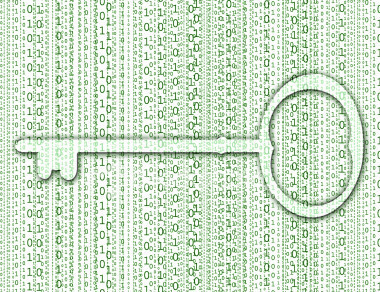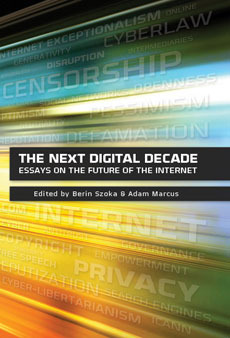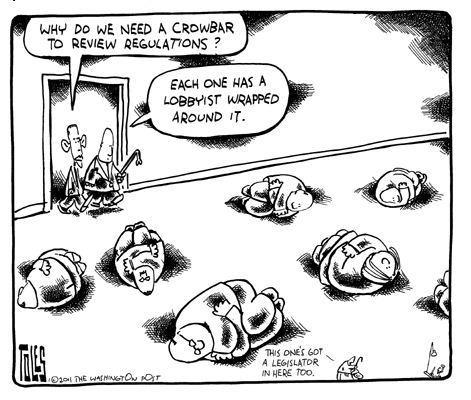Adam Thierer's Blog, page 148
January 20, 2011
Last Call for Summer 2011 Internship Applications through Google & Koch Fellowships!
The deadline for the Google Policy Fellowship is Friday, January 21 (at midnight PST). My new think tank, TechFreedom, just launched yesterday, is participating (as The Progress & Freedom Foundation, my former think tank, did for the last two years)—as are the Competitive Enterprise Institute (home to the TLF's Ryan Radia, Wayne Crews & Alex Harris) and Cato Institute (Jim Harper & Julian Sanchez).
The deadline for the Charles G. Koch Summer Fellow Program, run by the Institute for Humane Studies, is Monday January 31. TechFreedom, CEI and Cato are all participating, as are the Pacific Research Institute (Sonia Arrison), the Reason Foundation (Steve Titch) and the Washington Policy Center (Carl Gipson). Descriptions are available here (just select "technology" on the right). Also participating, for the first time, is the Space Frontier Foundation, on whose board I sit and for which I served as Chairman in 2008-2009.
If you look through each of our recent posts, you'll get a pretty good idea of the diverse array issues we all cover, and who focuses on what. There's certainly no shortage of interesting technology policy work to be done!
Both programs run 10 weeks and offer stipends. The Koch Program (which I participated in) is specifically geared towards those interested in free market ideas, and includes an excellent retreat, ongoing series of lectures, and group research project. As a "Koch-head" myself (class of 2000), I can attest to the quality of the program and the value of the alumni network. The Google program is in its fourth year and is already developing a valuable alumni network of its own.
Of course, most of our think tanks would probably be happy to have extra help around, so if you're interested in an internship during the school year or over the summer, don't hesitate to reach out to one of us. We may not necessarily be able to pay you but, hey, no one ever went into the think tank world to get rich!







Comcast-NBC & the FCC's Unprecedented Merger Shakedown
At this week's excellent State of the Net 2011 event, I participated in a panel discussion about the future of the online video marketplace. Unsurprisingly, a great deal of time was spent discussing the Federal Communications Commission's (FCC) recent approval of the proposed merger of Comcast and NBC Universal (NBCU). On Tuesday, the agency voted 4-1 to approve the deal with myriad conditions and "voluntary" concessions being attached. The FCC voted on the matter and issued a short press release and late today issued its final 279-page order.
The Commission's Comcast-NBCU order represents an unprecedented regulatory shakedown of a company that obviously would have done just about anything to gain approval of the deal. I believe the conditions the FCC has imposed on the deal, which are to run for seven years, are tantamount to a death by a thousand cuts for the deal and, ultimately, could lead to its failure. That's because the requirements placed on the new entity make it practically impossible for Comcast to leverage the content it is acquiring from NBCU and profit from it such that they can recoup the significant costs associated with the deal.
In essence, Comcast-NBCU was forced to preemptively surrender much of its intellectual property rights by agreeing to share most of their content properties with others on terms someone else will determine. That's a recipe for disaster. If Comcast-NBCU doesn't have the right and ability to cut deals on terms that they find advantageous to the company and its shareholders, then why go through with this deal at all? Isn't the whole point of such a deal with get some additional in-house content properties — something Comcast almost completely lacked previously — such that it would have some content gems to highlight and leverage in an attempt to attract new customers (or just keep old ones)? If someone else is constantly setting the terms of their deals, it will limit the inherent value of the IP owned by Comcast-NBCU and sap most of the value from the deal.
Particularly concerning in this regard is the language of the FCC's order dealing with online video marketplace. As a condition of approval, the FCC's plan requires that Comcast-NBCU:
Provides to all MVPDs, at fair market value and non-discriminatory prices, terms, and conditions, any affiliated content that Comcast makes available online to its own subscribers or to other MVPD subscribers.
Offers its video programming to legitimate OVDs [online video distributors] on the same terms and conditions that would be available to an MVPD.
Makes comparable programming available on economically comparable prices, terms, and conditions to an OVD that has entered into an arrangement to distribute programming from one or more of Comcast-NBCU's peers.
Offers standalone broadband Internet access services at reasonable prices and of sufficient bandwidth so that customers can access online video services without the need to purchase a cable television subscription from Comcast.
Does not enter into agreements to unreasonably restrict online distribution of its own video programming or programming of other providers.
Does not disadvantage rival online video distribution through its broadband Internet access services and/or set-top boxes.
Does not exercise corporate control over or unreasonably withhold programming from Hulu.
The first thing to note about this language is that, through a merger proceeding, the FCC has just inserted itself into the online video marketplace in a major way and began regulating it. Not so long ago, the idea of the FCC regulating the Net and online video would have been scoffed at and rejected as outlandish. But here we are now with the FCC knee-deep into the daily workings of the online marketplace without Congress ever having passed a law authorizing such a thing.
The second thing to note about those online video provisions is that they potentially foreshadow the rise of a compulsory license for online video distribution. In essence, to use antitrust parlance, Comcast-NBCU has a "duty to deal" its content to others on terms that regulators will police. Of course, we already have many compulsory licenses in place in America, including one for traditional cable television, so it will be tempting for some to say, 'why not one for online video, too?' But it seems like this would have been a good time to give good ol' fashion market competition and contractual negotiations a chance instead. After all, where is the harm here? If NBC's content is supposedly so valuable that Comcast will exploit it in future online video negotiations, why hasn't NBC been exploiting that content for years already?
Of course, this exposes the real irony of all this hand-wringing about the Comcast-NBCU deal: It's a fight about supposedly "Must See TV" that not everyone feels they must see anymore! Don't get me wrong, NBCU does have some wonderful content in its stable of properties, and Comcast is no doubt happy to have something better than the Golf Channel under it's corporate umbrella now. But, seriously, would the Earth spin of its axis tomorrow if Comcast suddenly decided to try to lock up all its new NBC content and refuse to deal with anyone else on equal terms? That would be highly unlikely, of course, since it would be economic suicide to restrict access to a single platform. But if they did, would anyone really care? In the modern world of content abundance and distribution platform diversity, it's hard to image most consumers would. Comcast has bet the farm on the opposite theory — that NBCU content is still hotly demanded and will add real value to the company — and yet, even without the onerous conditions it has been forced to agree to here, the firm must know just how risky this move is for them and their shareholders. Those who lost their shirts on the failed AOL-TimeWarner and NewsCorp-DirecTV deals can attest to how illusive those so-called "synergies" can be when two very different media operations and cultures are merged. [Read my old paper on "A Brief History of Media Merger Hysteria" for all the grim details on those deals and how they went south so quickly.]
Finally, perhaps the most interesting provision in the FCC's order is the requirement that Comcast-NBCU "makes comparable programming available on economically comparable prices, terms, and conditions to an [online video distributors] that has entered into an arrangement to distribute programming from one or more of Comcast-NBCU's peers." As I read it, what this means is that when competing content companies — such as Disney, News Corp., Viacom, etc. — cut deals with an online video distributors, it establishes a precedent for what is expected of Comcast-NBCU when they go to strike terms and prices with OVDs. How long will it be before this provision leads to accusations of collusion among major content companies?! Moreover, this provision is somewhat insulting since it basically assumes all content is created equal when that is most definitely not the case. When Disney is negotiating with an OVD to carry ESPN, should that deal really have any bearing on Comcast cutting a deal with someone for the Golf Channel or Versus?
There are many other provisions and conditions that I haven't bothered detailing here, including program "localism" mandates, broadband deployment and pricing requirements, program "diversity" requirements, children's television mandates, more "PEG" programming requirements, and more. But wait, you ask: won't all these provisions and the others discussed above benefit consumers? It'd be nice to imagine that the FCC could work such magic by waving its regulatory wand and trying to mandate consumer benefits into existence by decree. And perhaps some of these requirements will help some consumers in a marginal way. In reality, however, healthy companies are the better way to serve customers with new and better services. Hamstringing merging entities with layers of red tape like this is particularly misguided in light of how much money is being spent to make the deal happen. Finally, regulators should just be happy that someone out there wanted to take over NBC and help the struggling media operator rebound! If regulators are really concerned about the future of "localism" or the health of traditional media operators like NBC more generally, asking for a pound of flesh through a set of "voluntary" concessions like these isn't a good way to achieve that goal.







Congress's Tech Agenda: Something Old, Something Older
 I reported for CNET yesterday on highlights from the State of The Net 2011 conference. Though I didn't attend last year's event, I suspect much of the conversation hasn't changed.
I reported for CNET yesterday on highlights from the State of The Net 2011 conference. Though I didn't attend last year's event, I suspect much of the conversation hasn't changed.
For an event that took place nearly a month after the FCC's "final" vote on net neutrality, the issue seems not to have quieted down in the least. A fiery speech from Congresswoman Martha Blackburn promised a "Congressional hurricane" in response to the FCC's perceived ultra vires decision to regulate where Congress has refused to give it authority, a view supported by House and Senate counsel who spoke later in the day.
There seemed to be agreement from Republicans and Democrats that undoing the Open Internet Report and Order was the Republicans' top priority on the tech agenda. Blackburn has already introduced a bill, with at least one Democratic co-sponsor, to make clear (clearer?) that the FCC has no authority to regulate any Internet activity. And everyone agreed that the Republicans would move forward with a resolution of disapproval under the Congressional Review Act, and that the resolution would pass the House and probably the Senate. (Such resolutions are filibuster-proof, so Senate Republicans would need only a few Democrats.)
House Energy and Commerce senior counsel Neil Fried had mentioned the CRA resolution at CES a few weeks ago. But now it's been upgraded from a possibility to a likelihood.
The disagreement comes over whether President Obama would veto the resolution. Speculating in a vacuum, as many participants did, doesn't really help. The answer will ultimately depend on what other horse trading is in progress at the time. (See: tax cuts, health care, etc.) Much as those of us who follow net neutrality may think it's the center of the political universe, the reality is that it could easily become a bargaining chip.
That's especially so given that almost no one was happy with the rules as they were finally approved. Among advocates, opponents, and even among the five FCC Commissioners, only Chairman Genachowski had any enthusiasm for Order. (He may be the only enthusiast, full stop. On a panel on which I participated on the second day, advocates for net neutrality were tepid in their support of the Order or its prospects in court. I think tepid is being generous.)
And everyone agreed that there would be legal challenges based on the FCC's dubious statutory authority. Amy Schatz of the Wall Street Journal said she knew of several lawyers in town shopping for friendly courts, and that pro-regulation advocates may themselves challenge the rule. Timing could be important, or not.
Beyond net neutrality, which seems likely to dominate the tech agenda for the first six months of the new Congress, bi-partisan words were flung over the need to resolve the imminent (arrived?) "spectrum crisis," and to reform the bloated and creaky Universal Service Fund. These, it's worth remembering, were two of the top priorities from last year's National Broadband Plan, which sadly disappeared into the memory hole soon after publication.
Other possible agenda items I heard over the course of the two day event, but much farther down the list: revival of COICA (giving DHS new powers to seize domains used for trademark and copyright violations), privacy, cloud computing, cybersecurity, ECPA reform, retransmission, inter-carrier compensation, and Comcast/NBC merger. I missed a few panels, so I'm sure there was more.
What are the chances any of these conversations will actually generate new law? Anybody?







Good news from House Energy & Commerce on spectrum
In the past we've commended the FCC and the administration for their support of incentive auctions to move spectrum now held by broadcaster to its best valued use, likely mobile broadband. Now it's time to applaud the new House leadership for similarly making moves in the right direction.
The Washington Post reports today that "TV broadcasters resist FCC proposal to surrender more airwaves," and earlier this month Chairman Genachowski expressed uncertainty about whether he would get congressional support for incentive auctions. But now comes word that newly inaugurated House Energy and Commerce Chairman Fred Upton is likely to include spectrum incentive auctions in new broadband rules. It's great to see Republicans and Democrats coming together on good policy, especially in the face of opposition from a lobby as powerful as the broadcasters.
Moreover, today we also find out that the committee leadership is also considering a commercial auction of the infamous D Block spectrum, which public safety wants simply allocated to them. This puts the E&C leadership at odds with AT&T and Verizon, who oppose auctioning the D Block and would rather see a taxpayer-built built public safety network on the band. (Aside: While I'm all in favor of auction as an allocation method, I am skeptical at solving the public safety interoperability problem by simply throwing money at the existing system.)
So cheers to the new House leadership. Now that everyone's one the same page (fingers crossed), this should be an easy win for smart policy.







Toles Cartoon on Regulatory Capture
Washington Post cartoonist Tom Toles is certainly no fan of free markets, but his contribution to today's paper offers us this humorous take on the dangers of regulatory capture, a subject we've spent much time documenting here on the TLF.







January 19, 2011
Watch Launch of TechFreedom & The Next Digital Decade Live!
Today we're launching both TechFreedom, a new digital policy think tank, and its first publication, The Next Digital Decade: Essays on the Future of the Internet—after the conclusion of the State of the Net conference. Watch the livestream below—12:45-5:30 pm Eastern / 9:45 am – 2:30 Pacific:
Please join the conversation about the book by tweeting about the event using the #NDD hashtag. And follow us at @Tech_Freedom & @Digital_Decade! Check out the agenda below.
Next Digital Decade Symposium Agenda
12:30 – 12:45pm
Lunch buffet served
12:45 – 1:00pm
Introductory Interview: Overview of The Next Digital Decade and TechFreedom
Declan McCullagh, CNET, @DeclanM
Berin Szoka, TechFreedom, @BerinSzoka
1:00 – 2:10pm
Panel 1: Internet Optimism, Pessimism & the Future of Online Culture
Berin Szoka, TechFreedom (Moderator)
Andrew Keen, author of Cult of the Amateur, @AJKeen
Adam Thierer, Mercatus Center, @AdamThierer
Prof. Ann Bartow, South Carolina School of Law, @ProfABartow
2:15 – 3:25pm
Panel 2: Internet Exceptionalism & Intermediary Deputization
Adam Thierer, Mercatus Center (Moderator)
Prof. Eric Goldman, Santa Clara School of Law, @EricGoldman
Josh Goldfoot
Prof. H. Brian Holland, Texas Wesleyan School of Law, @Prof_Holland
Prof. Mark MacCarthy, Georgetown University, @MacCartM
Prof. Frank Pasquale, Seton Hall Law School, @BlckBx
3:25 – 3:40pm
Coffee break
3:40 – 4:50pm
Panel 3: Who Will Govern the Net in 2020?
Berin Szoka, TechFreedom (Moderator)
Prof. David Johnson, New York Law School
Prof. Milton Mueller, Syracuse University, @MiltonMueller
Shane Tews, VeriSign @ShaneTews
Chris Wolf, Hogan Lovells @PrivacyWolf
4:50 – 5:20pm
Fireside Chat with FCC Commissioner Robert McDowell & Declan McCullagh
5:20 – 5:30pm
Closing Remarks
5:30 – 7:15pm
Cocktail Reception







January 18, 2011
Don Norman on living with complexity
On the podcast this week, Don Norman, a former Apple vice-president, co-founder of the Nielsen Norman Group, and one of the world's most influential designers, discusses his new book, Living With Complexity. Norman talks about differences between complexity, something being complicated, and simplicity, and suggests that people who bemoan "technology" don't actually seek simplicity. He also discusses differences between designing a product and designing a system, using examples of iPods and iTunes, the Amazon Kindle, and BMW's Mini Cooper — products whose success depended upon the success of larger systems. Norman also notes the difference between a forcing function and a nudge, explains how complicated rules can weaken security, and comments on sociable design in realspace and on the internet.
Related Links
"Simplicity Is Highly Overrated", by Norman
"Living with Complexity: How Apple Reinvented Music Distribution", by Norman
"Simplicity Is Not the Answer", by Norman
To keep the conversation around this episode in one place, we'd like to ask you to comment at the web page for this episode on Surprisingly Free. Also, why not subscribe to the podcast on iTunes?







January 17, 2011
Alcohol Liberation Front 13 & Tech Policy Happy Hour after State of the Net
If you're in for the State of the Net conference this week (or happen to live here), join us for a happy hour among tech policy peeps Tuesday afternoon at 6pm at Johnny's Half Shell (400 N Capitol St).
We'll also toast the launch of TechFreedom, the new digital policy think tank we're launching Wednesday with a half-day symposium for TechFreedom's first publication: The Next Digital Decade: Essays on the Future of the Internet.
RSVP on Facebook here! (We need an accurate headcount.)







Why you should always encrypt your smartphone
The smartphone is arguably one of the most empowering and revolutionary technologies of the modern era. By putting the processing power of a personal computer and the speed of a broadband connection into a device that fits in a pocket, smartphones have revolutionized how we communicate, travel, learn, game, shop, and more.
Yet smartphones have an oft-overlooked downside: when they end up in the wrong hands, they offer overreaching agents of the state, thieves, hackers, and other wrongdoers an unparalleled avenue for uncovering and abusing the volumes of sensitive personal information we increasingly store on our mobile phones.
Over on Ars Technica, I have a long feature story that examines the constitutional and technical issues surrounding police searches of mobile phones:
Last week, California's Supreme Court reached a controversial 5-2 decision in People v. Diaz (PDF), holding that police officers may lawfully search mobile phones found on arrested individuals' persons without first obtaining a search warrant. The court reasoned that mobile phones, like cigarette packs and wallets, fall under the search incident to arrest exception to the Fourth Amendment to the Constitution.
California's opinion in Diaz is the latest of several recent court rulings upholding warrantless searches of mobile phones incident to arrest. While this precedent is troubling for civil liberties, it's not a death knell for mobile phone privacy. If you follow a few basic guidelines, you can protect your mobile device from unreasonable search and seizure, even in the event of arrest. In this article, we will discuss the rationale for allowing police to conduct warrantless searches of arrestees, your right to remain silent during police interrogation, and the state of mobile phone security.
You can read the full essay on Ars Technica here. And while you're at it, I highly recommend watching this informative YouTube video that explains why it's not a good idea to talk to police:







January 14, 2011
FCC Commissioner McDowell to Keynote 1/19 Launch of TechFreedom & "The Next Digital Decade"
[image error]
FCC Commissioner Robert McDowell will be interviewed by veteran tech reporter Declan McCullagh of CNET in a "fireside chat" on tech policy at TechFreedom's half-day symposium to introduce its first publication: The Next Digital Decade: Essays on the Future of the Internet.
TechFreedom is a new non-profit, non-partisan think tank. Our mission is to promote the progress of technology that improves the human condition and expands individual capacity to choose. We advance the freedoms that make experimentation, entrepreneurship and investment possible, and thus unleash the ultimate resource: human ingenuity. On a wide variety of issues, TechFreedom will outline a path forward for policymakers towards a bright future where technology enhances freedom, and freedom enhances technology.
The Next Digital Decade brings together 26 thought leaders on Internet law, philosophy, policy and economics to consider the future of the Internet, from a wide variety of perspectives. This book is essential reading for anyone gazing toward the digital future. The symposium features authors from a selection of the ten organizing questions asked in the book. You can read, download or buy the book here.

What: TechFreedom & The Next Digital Decade Book Launch When: Wednesday, January 19
12:30-5:30 p.m. Symposium
5:30-7:15 p.m. Cocktail reception Where: Hyatt Regency Capitol Hill
Columbia B, 400 New Jersey Avenue NW, Washington, DC Who: Panel 1: Internet Optimism, Pessimism & the Future of Online Culture Berin Szoka, TechFreedom (Moderator) Andrew Keen, author of Cult of the Amateur Adam Thierer, Mercatus Center Prof. Ann Bartow, South Carolina School of Law
Panel 2: Internet Exceptionalism & Intermediary Deputization
Adam Thierer, Mercatus Center (Moderator) Prof. Eric Goldman, Santa Clara School of Law Josh Goldfoot Prof. Mark MacCarthy, Georgetown University Prof. Frank Pasquale, Seton Hall Law SchoolPanel 3: Who Will Govern the Net in 2020?
Berin Szoka, TechFreedom (Moderator) Prof. David Johnson, New York Law School Prof. Milton Mueller, Syracuse University Shane Tews, VeriSign Chris Wolf, Hogan LovellsFireside Chat on the Next Digital Decade
Hon. Robert McDowell, FCC Commissioner Declan McCullagh, CNETTo Register: Registration is free but space is limited, so attendees must register in advance. Event questions and media inquiries should be directed to Adam Marcus at amarcus@techfreedom.org.
The event will be also be streamed live on Ustream. Tweet about the event by mentioning @Digital_Decade.







Adam Thierer's Blog
- Adam Thierer's profile
- 1 follower





